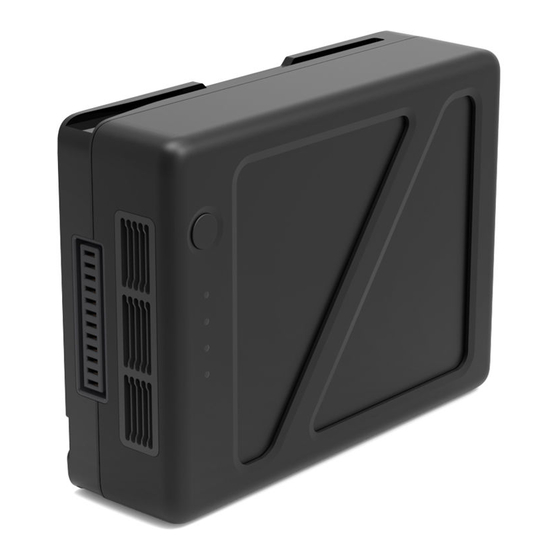dji TB50 Panduan Pemeliharaan - Halaman 9
Jelajahi secara online atau unduh pdf Panduan Pemeliharaan untuk Aksesori Kamera dji TB50. dji TB50 11 halaman. For m200 series drones
Juga untuk dji TB50: Panduan Pengguna (3 halaman)

Battery Maintenance
The steps below are critical to making sure your batteries are ready to go and are properly
calibrated. Specifically, charging and discharging the battery ensures an accurate digital readout
of battery percentage which is a vital metric when operating your drone. If this process is
ignored the battery percentage margin of error will be amplified by continued operations.
Complete the following every 3 months or 50 cycles (whichever comes first)
1. Charge and discharge batteries per instructions below.
2. Make sure the cell voltage difference is less than 0.1V after the battery is fully charged
and left stationary for 6 hours.
3. Make sure the battery is not swollen, leaky, or damaged. See section: "Battery Issues:
Signs to Look For" below.
4. Clean battery terminals with a clean dry cloth and make sure they are clean.
5. Make sure battery firmware is updated to the latest version. See section: "Battery Care
and Maintenance: Firmware"
Charge and Discharge Instructions:
1. Charge the battery to 100% and leave the battery stationary for more than 24 hours.
2. Install the battery into the aircraft. Fly the aircraft and when the remaining power level is
less than 20%, land the aircraft and remove the battery.
3. Leave the battery stationary for more than six hours.
4. Check cell voltage.
5. Charge the battery to 100% power level.
6. Repeat the above steps 1-4.
Battery Retirement
Properly utilizing, handling, and storing batteries will ideally allow for 200 charging cycles before
a battery should be taken out of service. Retirement of batteries based on a cycle count is a
difficult gauge to go by as there is no standard as to what defines a cycle, for the case of a DJI
battery it is any time the battery is charged. It is also important to look for any other issues that
may be present (which we detail in the next section) when making a battery retirement decision.
